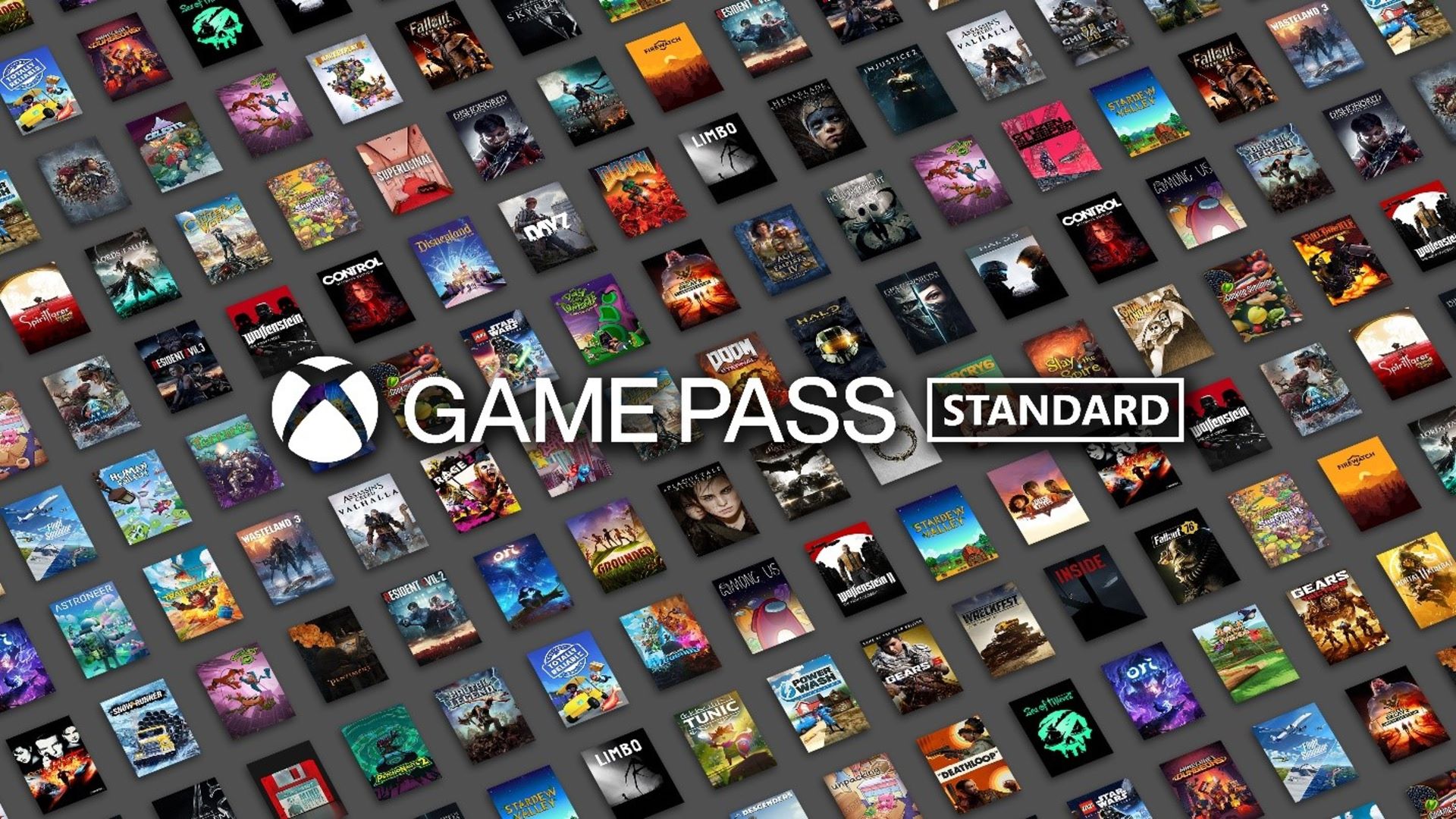Ooof. Yea. This actually reminds me of Destiny 2. They wholesale removed all the OG content from the game and you could never really understand Destiny if you were a new player. And all of those original places and content and raids are gone.At this point it should be well understood that can happen. So don't buy F2P MTs if you don't want them disappearing one day. And if everyone stops buying MTs, that model will die and you'll get something else, like ownership, or more likely subs on a contract with a termination clause.
In the above petition. I don't think in-game items are part of it. When a game is closed, giving people the chance to play the game on their own servers would not include carrying over all their cosmetics. You couldn't preserve and distribute the database for users.
You are using an out of date browser. It may not display this or other websites correctly.
You should upgrade or use an alternative browser.
You should upgrade or use an alternative browser.
Business aspects of Subscription Game Libraries [Xbox GamePass, PSNow]
- Thread starter iroboto
- Start date
This is a perfect example of why this petition is pointless. Beyond the fact that a legal requirement would require conscription of labor to developers, many of whom would be unemployed because their studio shut down because their dream game has failed, you government agencies would have to define what the game is to enforce what was mandated to be preserved. In Destiny 2's case, the game in many ways is less of a complete package than it was at launch, even if it might have more content by most metrics.Ooof. Yea. This actually reminds me of Destiny 2. They wholesale removed all the OG content from the game and you could never really understand Destiny if you were a new player. And all of those original places and content and raids are gone.
Charlietus
Regular
Are we proposing that custom and private server support is such a huge ask (for games coming out like 3 years from now, not even current games) that the monetary burden would be too much?This is a perfect example of why this petition is pointless. Beyond the fact that a legal requirement would require conscription of labor to developers, many of whom would be unemployed because their studio shut down because their dream game has failed, you government agencies would have to define what the game is to enforce what was mandated to be preserved. In Destiny 2's case, the game in many ways is less of a complete package than it was at launch, even if it might have more content by most metrics.
I'm sure that when warranties for products were enforced there were people against it. It's always the same.
What's wrong with my idea of just making the server executable available and document how to set it up?This is a perfect example of why this petition is pointless. Beyond the fact that a legal requirement would require conscription of labor to developers, many of whom would be unemployed because their studio shut down because their dream game has failed, you government agencies would have to define what the game is to enforce what was mandated to be preserved. In Destiny 2's case, the game in many ways is less of a complete package than it was at launch, even if it might have more content by most metrics.
From a consumer perspective nothing. Back in the day all servers were private, people funded them themselves. The business doesn’t want the population split between old and new content. They aren’t willing to serve old content because it doesn’t make any money for their f2p modelWhat's wrong with my idea of just making the server executable available and document how to set it up?
I mean for EOL titles. If we're to have a law to preserved games people own, and those games are dependent on servers, doesn't the 'free server' option solve the legal requirement without producing work for the devs as is see colon's concern? I don't think the petition is pointless due to being unworkable.
D
Deleted member 2197
Guest
Producers/developers can come out with a executable to break any dependence on servers if they really wanted. Many games at GOG that had server dependence are altered to run locally. Also illegally hacked games (TPB or KickAss) break server dependence and run locally via modified executable, so it should't really be a lot of effort for developers to do likewise with EOL games.I mean for EOL titles. If we're to have a law to preserved games people own, and those games are dependent on servers, doesn't the 'free server' option solve the legal requirement without producing work for the devs as is see colon's concern? I don't think the petition is pointless due to being unworkable.
Thats what Unreal Tournament did (mentioned because I used to run an Unreal Tournament back in the day)What's wrong with my idea of just making the server executable available and document how to set it up?
run the game click Multiplayer - Start new multiplayer game configure it how you want it, then click dedicated

The game will then exit and run RunServer.bat which contains the following
@echo off
:10
ucc server %1 %2 %3 %4 %5 %6 %7 %8 %9 -log=server.log
copy server.log servercrash.log
goto 10
There's nothing wrong with having those things, but some games, especially ones with extensive account systems that require personal data to be captured and stored (payment methods and the like), would be be a security weak point if those systems were available to the user. You wouldn't want to expose that data, and you wouldn't want to expose the means and methods of those systems either. And some games, especially the free to play type games, striping out those systems would radically change the gameplay loop of those titles. So you end up with plenty of motivation to not expose those systems at launch, and when it comes time to wind that game down, it's more often than not because a game has failed. So at then end of that games life, you have a mandate for some employees to go through and strip out those features, with a high potential they are never going to be compensated for that task. A large company like EA would obviously pay the employees for the task, but if you have a situation like Fntastic's The Day Before, where the game fails so hard it takes down the studio, who is going to pay the people to make those changes? And if the studio no longer exists, who is mandated to make those changes? The Day Before is a great example because the game is just 100% gone, and it's my understanding that nearly everyone was refunded for the purchase. So who would even have the right to request that the server code be made available, if the licenses had been refunded. I'm sure a few steam accounts still own the license simply because they never filled a refund request, but that number must be incredibly small.Are we proposing that custom and private server support is such a huge ask (for games coming out like 3 years from now, not even current games) that the monetary burden would be too much?
I'm sure that when warranties for products were enforced there were people against it. It's always the same.
Nothing is wrong with the idea. Mandating games have certain features post launch in perpetuity is part of the issue I have. Video games are art, and I wouldn't want to mandate any artist to limited in any way. When you start limiting art, you won't get paintings that shred themselves, and in video games, you won't get a game like OneShot, where your save file is in some ways permanent, and even finishing the game and starting a new one changes the game. If we are going to mandate things for preservation, are we to mandate that the new game experience in OneShot is also to be preserved for people who already own and have finished the game? Part of the art of that game is that you only have one shot.What's wrong with my idea of just making the server executable available and document how to set it up?
Charlietus
Regular
If, as a developer, you choose to use microtransactions in a online game, then (if the proposal passes) you'll have to plan for that from the beginning of development. Developers also have versions of their games without microtransactions and other systems for testing. We can find a thousand other problems, but if it passes, developers will adapt and it will be fine.There's nothing wrong with having those things, but some games, especially ones with extensive account systems that require personal data to be captured and stored (payment methods and the like), would be be a security weak point if those systems were available to the user. You wouldn't want to expose that data, and you wouldn't want to expose the means and methods of those systems either. And some games, especially the free to play type games, striping out those systems would radically change the gameplay loop of those titles. So you end up with plenty of motivation to not expose those systems at launch, and when it comes time to wind that game down, it's more often than not because a game has failed. So at then end of that games life, you have a mandate for some employees to go through and strip out those features, with a high potential they are never going to be compensated for that task. A large company like EA would obviously pay the employees for the task, but if you have a situation like Fntastic's The Day Before, where the game fails so hard it takes down the studio, who is going to pay the people to make those changes? And if the studio no longer exists, who is mandated to make those changes? The Day Before is a great example because the game is just 100% gone, and it's my understanding that nearly everyone was refunded for the purchase. So who would even have the right to request that the server code be made available, if the licenses had been refunded. I'm sure a few steam accounts still own the license simply because they never filled a refund request, but that number must be incredibly small.
Nothing is wrong with the idea. Mandating games have certain features post launch in perpetuity is part of the issue I have. Video games are art, and I wouldn't want to mandate any artist to limited in any way. When you start limiting art, you won't get paintings that shred themselves, and in video games, you won't get a game like OneShot, where your save file is in some ways permanent, and even finishing the game and starting a new one changes the game. If we are going to mandate things for preservation, are we to mandate that the new game experience in OneShot is also to be preserved for people who already own and have finished the game? Part of the art of that game is that you only have one shot.
Also, this would limit artists? What
I don't really think anyone's doing that. The issue is lack of core access to the game - it just plain won't run. The interest is in ensuring that the game as you experience it doesn't stop one day. The solution is to enable the game to carry on in that state when EOLed. Nothing else is wanted to be enforced not even as a suggestion. Just when the access servers are turned off, the users can somehow still run the game they installed.Nothing is wrong with the idea. Mandating games have certain features post launch in perpetuity is part of the issue I have.
cheapchips
Veteran
Oh god! There's another one!
Introducing Gamepass Standard.

 news.xbox.com
news.xbox.com
Introducing Gamepass Standard.

Xbox Game Pass Standard Is Here - How to Choose the Right Plan for You - Xbox Wire
Starting today, we are launching a new plan for Xbox Game Pass - Game Pass Standard. Find out more, and choose which plan is best for you.
 news.xbox.com
news.xbox.com
This was supposed to be announced a while back but they said they would wait until now I guess.Oh god! There's another one!
Introducing Gamepass Standard.

Xbox Game Pass Standard Is Here - How to Choose the Right Plan for You - Xbox Wire
Starting today, we are launching a new plan for Xbox Game Pass - Game Pass Standard. Find out more, and choose which plan is best for you.news.xbox.com
Similar threads
- Replies
- 17
- Views
- 2K
- Locked
- Replies
- 121
- Views
- 18K
- Replies
- 126
- Views
- 48K
